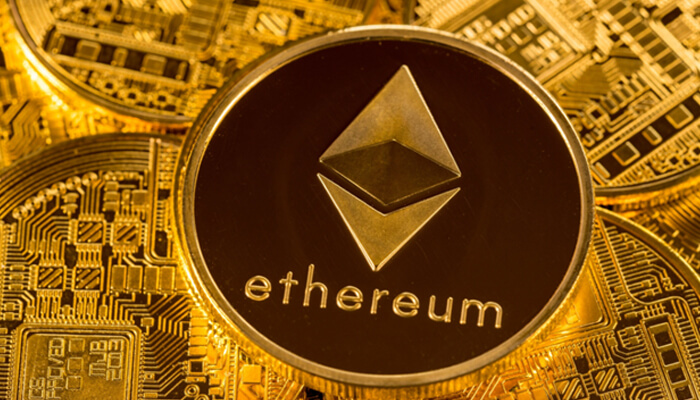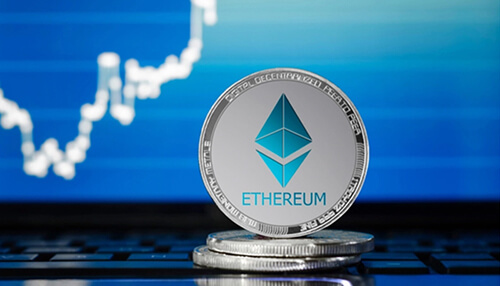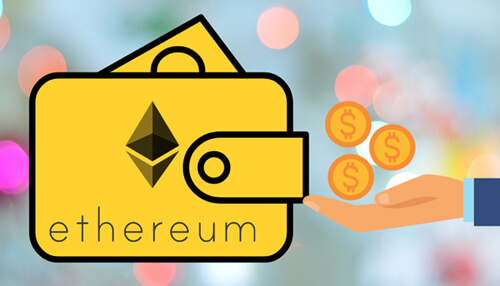Ethereum is a cryptocurrency that’s been around for a few years now. It originally started out as a way to facilitate contracts and transactions, but it has since evolved into something much more. In recent months, Ethereum has become the backbone of the blockchain gaming market thanks to its use of smart contracts. This article will explore how to buy and trade ETH, as well as what role it plays in the blockchain industry.
What Is Ethereum, and What Makes It Different From Other Cryptocurrencies
Ethereum is a type of cryptocurrency that is decentralized and it’s running in smart contracts. The Ethereum protocol and blockchain have a price for each operation. The currency is called Ether and is used to pay for computation time and transaction fees.
The fees are collected by the nodes that validate the network. These nodes are called miners, producing new blocks in the chain, thus maintaining the network.
Ethereum is useful in securing, codifying, and even trading almost everything. That is, from domain names, voting, crowdfunding, company government, financial exchanges, agreements and contracts, and even intellectual properties.
Differences Between Ethereum and Bitcoin
Bitcoin and Ethereum are two of the most popular cryptocurrencies. Both have their own advantages and disadvantages. Here are some key differences between them:
1. Bitcoin is a digital currency, while Ethereum is a decentralized platform that runs smart contracts. The contracts in ETH are programs that automatically execute transactions when certain conditions are met.
2. Ethereum has a more flexible scripting language than Bitcoin, which allows for more complex applications
3. The total supply of Ethereum is unlimited, while the total supply of Bitcoin is capped at 21 million
4. Ethereum block time is around 14 seconds, while Bitcoin’s is around ten minutes. The block time in Ethereum is automatically set to ensure that a new block is created every 14 seconds. This results in much faster transaction times as compared to Bitcoin, which has a block time of 10 minutes.
The main reason for this difference is that Ethereum uses a different consensus algorithm, called Proof of Work (PoW). PoW allows miners to group transactions together into blocks, and then ‘solve’ the block by finding a Hash that meets certain criteria. This process is significantly faster than the process used by Bitcoin, which requires miners to solve a complex mathematical problem in order to add a new block to the blockchain.
5. Ethereum transactions can be confirmed in a few seconds, while Bitcoin’s can take up to an hour. For cryptocurrency users, one of the key considerations is transaction speed. Nobody wants to wait hours or even days for their transaction to be confirmed. Ethereum offers a much faster transaction speed than Bitcoin, with confirmations taking just a few seconds.
This is possible because Ethereum uses a different consensus algorithm, called proof of stake, which is more efficient than Bitcoin’s proof of work. As a result, Ethereum is able to offer faster transaction speeds and lower transaction fees. For many cryptocurrency users, this makes it the preferred choice for day-to-day transactions.
How To Buy and Trade in ETH
If you’re looking to buy eth with a credit card, there are a few things you’ll need to do first. First, you’ll need to find a reputable cryptocurrency exchange that offers ether trading. Once you’ve found an exchange, you’ll need to create an account and verify your identity. Once your account is verified, you’ll be able to deposit funds into it using your credit card.
Once the funds are in your account, you’ll be able to place an order to buy ether. Finally, once your order is filled, the ether will be deposited into your account, and you’ll be able to start trading!
To start trading, simply navigate to the “Buy/Sell” page on Coinbase and enter the amount of ETH you’d like to purchase. Once you’ve placed your order, it will be filled, and you’ll be the proud owner of some ETH!
Tips for Trading on ETH
When it comes to ETH trading, there are a few things that you need to take into account. Here are ten of the most important:
1. Consider the fees associated with trading ETH. Ensure you know the fees charged by the exchange or platform you’re using, as they can eat into your profits
2. always be aware of the risks involved in any trade. Don’t put all your eggs in one basket, and never trade more than you can afford to lose
3. Have a plan and stick to it. Know your goals and what you’re willing to risk before entering any trade
4. Don’t get emotional about your trades. It’s easy to get caught up in the excitement of a winning trade or the disappointment of a losing one. But if your emotions dictate your trading, you’re more likely to make mistakes.
5. Don’t be afraid to take profits. It’s better to cash out and lock in a profit than to wait and hope the price will go up even further
6. Always use stop-loss orders. A stop-loss order is an order to sell your ETH at a certain price in case the market goes against you. This way, you can limit your losses and protect your profits.
7. Pay attention to market news and events. Keeping up with what’s happening in the world of Ethereum can help you make better-informed trading decisions
8. Don’t forget to diversify your portfolio. Don’t put all your eggs in one basket; don’t just trade ETH. Consider other cryptocurrencies, stocks, commodities, and even traditional fiat currencies.
9. Use a reliable and secure wallet to store your ETH. There are many different wallets, so do some research and find one that’s right for you
10. Always remember that cryptocurrency trading is a risky business. So never invest more than you can afford to lose, and always be prepared for the worst-case scenario.
With these ten things in mind, you should be well on becoming a successful ETH trader. So good luck, and happy trading!
The Benefits of Owning ETH and How It’s Used in the NFT Market
ETH has several advantages over other cryptocurrencies. These includes:
1. It’s more widely accepted than some alternatives. It’s also easier to convert ETH into other currencies, making it a good choice for investors looking to diversify their portfolios.
2. ETH is also used in the NFT market. NFTs are digital assets that can be traded on blockchain-based platforms like Ethereum. Because they’re built on Ethereum’s smart contract technology, NFTs can be used to represent anything from artwork and collectibles to gaming items and digital real estate.
3. ETH can be used to pay for transaction fees and other services on the Ethereum network
4. ETH can be traded on cryptocurrency exchanges for other digital assets or fiat currencies
5. It can be used to purchase goods and services online
6. ETH holders can earn interest by lending their tokens to others through decentralized lending platforms.
7. It can also be used to participate in initial coin offerings (ICOs)
8. It can be staked to earn rewards through proof-of-stake (PoS) consensus
9. ETH holders can vote on proposed changes to the Ethereum network
10. ETH can be used to purchase NFTs (non-fungible tokens)
Examples of Popular Ethereum Wallets That Can Be Used To Store Your Coins
Popular Ethereum wallets include MetaMask, Exodus, Trust Wallet, Enjin Wallet, and Atomic Wallet. These wallets can be used to store your coins and also offer additional features like exchanging cryptocurrencies and managing your tokens. We explain them in detail below:
1. MetaMask is one of the most popular Ethereum wallets, allowing you to store your ETH and other ERC20 tokens. It also enables you to exchange cryptocurrencies and manage your tokens. You can use MetaMask as a browser extension or as a mobile app.
2. Exodus is another popular option for storing ETH, which offers an easy-to-use interface and support for a wide range of cryptocurrencies. It also has a mobile app to keep your funds with you wherever you go.
3. Trust Wallet is a secure Ethereum wallet that supports ERC20 tokens. It also offers a built-in exchange to easily swap ETH for other supported cryptocurrencies. Trust Wallet also has a mobile app available for Android and iOS devices.
4. Enjin Wallet is a popular option for storing ETH and other cryptocurrencies. It offers a user-friendly interface, support for multiple languages, and advanced security features. Enjin Wallet also has a mobile app available on Android and iOS devices.
5. Atomic Wallet is another great option for storing ETH and other cryptocurrencies. It offers a secure and user-friendly interface, support for multiple languages, and a built-in exchange. Atomic Wallet also has a mobile app available on Android and iOS devices.
These are just some of the many popular Ethereum wallets that are available. Choose the wallet that best suits your needs, and start storing your ETH today!
Conclusion
That’s it! You now know how to buy and trade ETH, the cryptocurrency behind the NFT market. While this is a basic overview, we hope you found it helpful. Remember to always do your own research before investing in any digital asset and consult with a financial advisor if necessary. Happy trading!





